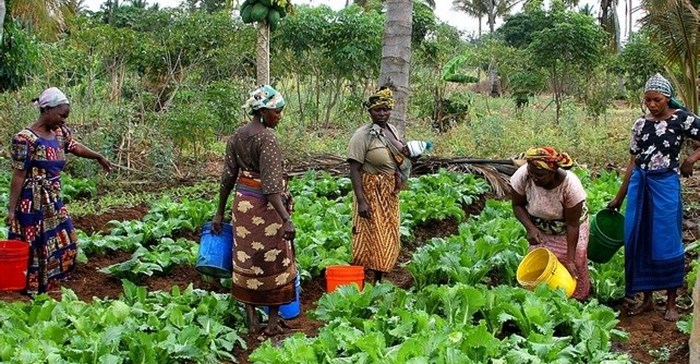Research by NEPAD through the Comprehensive Africa Agriculture Development Programme shows that climate change effects are becoming more frequent and more severe, threatening the reliability and productivity of agriculture, exacerbating the already extreme levels of poverty, and reinforcing persistent inequity and chronic undernutrition.
"Collaboration by various stakeholders including governments, NGOs and research bodies is needed now to rapidly scale up the African agricultural sector to improve food security and resilience to climate change," said Estherine Fotabong, NEPAD programmes director, at the NEPAD Climate Smart Agriculture (CSA) event held on the sidelines of COP21 in Paris on 7 December.
The African Union's New Partnership for Africa's Development (NEPAD) is supporting the implementation of CSA in Africa through the Agriculture Climate Change Programme and other related initiatives. These efforts will sustainably increase productivity, resilience and adaptation, as well as build capacity at all levels, especially for smallholder farmers and institutions in order to attain the goal of 25 million African farmers practicing climate-smart agriculture by 2025.
Climate change a major hurdle
"The African agricultural sector employs 65 percent of the continent's population, 50 percent of them are women and climate change is predicted to have significant impact on agriculture, therefore, constituting a major hurdle for Africa," said Miti Chikakula, COMESA agriculture officer. "By adopting CSA practices, smallholder farmers can reduce the risks they face due to climate change, while enhancing food security and livelihoods," he added.
As negotiations for COP21 draw to a close, participants raised concerns about the need to include climate-smart and gender appropriate policies in the COP21 agreements because women are the majority of African smallholder farmers. Participants also commended the NEPAD Agency's efforts in making climate-smart agriculture a reality for millions of smallholder farmers and forestalling the negative impacts of global climate change.
Scaling up CSA
The side event discussed the continent's approach to climate change and agriculture, showcased progress, experiences, and lessons from recent work to support the scaling up of CSA in Africa and the way forward beyond COP21. Discussions also centred on what efforts are required by both Africans and development partners to bring about practical and grassroot-based actions on agriculture and climate change, and opening up new opportunities for African farmers.
In closing, Martin Bwalya, NEPAD coordinator of programme implementation reaffirmed NEPAD's commitment to fighting climate change in Africa and to enhancing resilience and livelihoods through smart collaboration across all disciplines and sectors, evidence based processes, expanding the cadre of negotiators in terms of numbers and fields, strengthening capacities of smallholder farmers and institutions, embracing local knowledge and involving women who are active participants and players in agriculture.



































